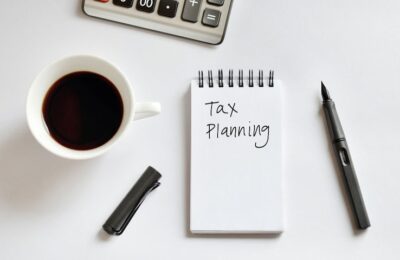The COVID-19 pandemic back in 2020 saw more than its fair share of winners and losers. Winners included online giants such as Amazon, which benefited from growing numbers of people shopping online. Similarly, supermarkets did well because they were able to remain open while many other businesses had to shut their doors. Online conferencing tools such as Zoom also saw huge growth. However, on the other hand, many people lost their jobs, saw their businesses struggle or fail, or found their self-employment income drying up. Many found it hard to pay their tax bills as a result.
The number of people struggling with taxes is growing
Unsurprisingly, the number of people struggling with their tax bills has increased exponentially. Research has found that the number of people struggling with their tax bills is six times higher than it was after the global financial crisis ended.
- Approx 864,000 people are now in Time to Pay arrangements with HMRC (up 38% on the previous year and up 600% on 2010)
- £117 billion in overdue tax has been added to HMRC’s outstanding debts system (this is debt not covered by a Time to Pay agreement).
The dangers of unpaid tax bills
The scale of unpaid tax not covered by Time to Pay agreements is particularly worrying. As we reported a while ago now, HMRC is resuming debt collection in earnest. If you have unpaid taxes and haven’t made a Time to Pay agreement, HMRC may send someone to visit you at your home or business address. While they will initially focus on making sure you know what support is available, if you ignore communications about unpaid tax, then the taxman could use various enforcement powers. These can include taking control of goods, summary warrants and court action. In addition, the longer you leave tax unpaid, the more interest and charges rack up.
What is Time to Pay?
Hopefully, if you have experienced difficulties paying your tax bill, you will have come to a Time to Pay arrangement with the taxman. If you haven’t, it’s worth taking steps to agree one as soon as possible.
In a nutshell, a Time to Pay agreement may be open to you if you owe less than £30,000 in tax. In these cases, you could be able to set up a payment plan online without having to contact HMRC directly.
However, to be able to do this, you also need to meet these other criteria:
- You don’t have any other payment plans or debts with HMRC
- Your tax returns are all up to date
- It’s less than 60 days after the payment deadline.
I can’t pay my tax bill – and I can’t set up a payment plan online
If you are unable to set up a Time to Pay agreement online, it’s still not too late to take action. To agree a solution with the taxman, you need to call the Self Assessment Helpline on 0300 200 3310. Lines are open 8am to 6pm, Monday to Friday (except bank holidays).
I can’t pay other taxes. What do I do?
If you are having trouble paying taxes other than Income Tax, you can agree a Time to Pay agreement for those as well. However, you cannot do this online. Instead you need to call HMRC’s Payment Support Service. This has a different number for you to call – 0300 200 3835 – but lines are open at the same times.
Can THP help me if I can’t pay my tax bill?
If you are a THP client, then we are very happy to advise you about what steps you need to take about unpaid taxes. Simply speak to your account manager for some friendly support.
About Mark Ingle
Owner-manager business specialist, Mark Ingle is key to building relationships with clients at the Chelmsford office. “I like to see clients enterprises grow and succeed.” Mark explains, “The team here has a lot to offer and I can see a lot of new businesses responding to that.”
Having worked for accountancy practices in London and Essex, Mark has worked with a range of companies varying in size. For Mark, THP stands out for its “local firm approach with the resources of a larger practice.”
Although a keen traveller, Mark is focused on giving his clients at THP the highest service, “Right now, I aim to help the clients we have to the best of my ability which will help me attract more of the right clients in the future.”
Mark’s specialist skills:
- Annual and Management Accounts
- Tax and VAT
- Strategy and Business Planning
- Marketing and Sales
- Business Development












